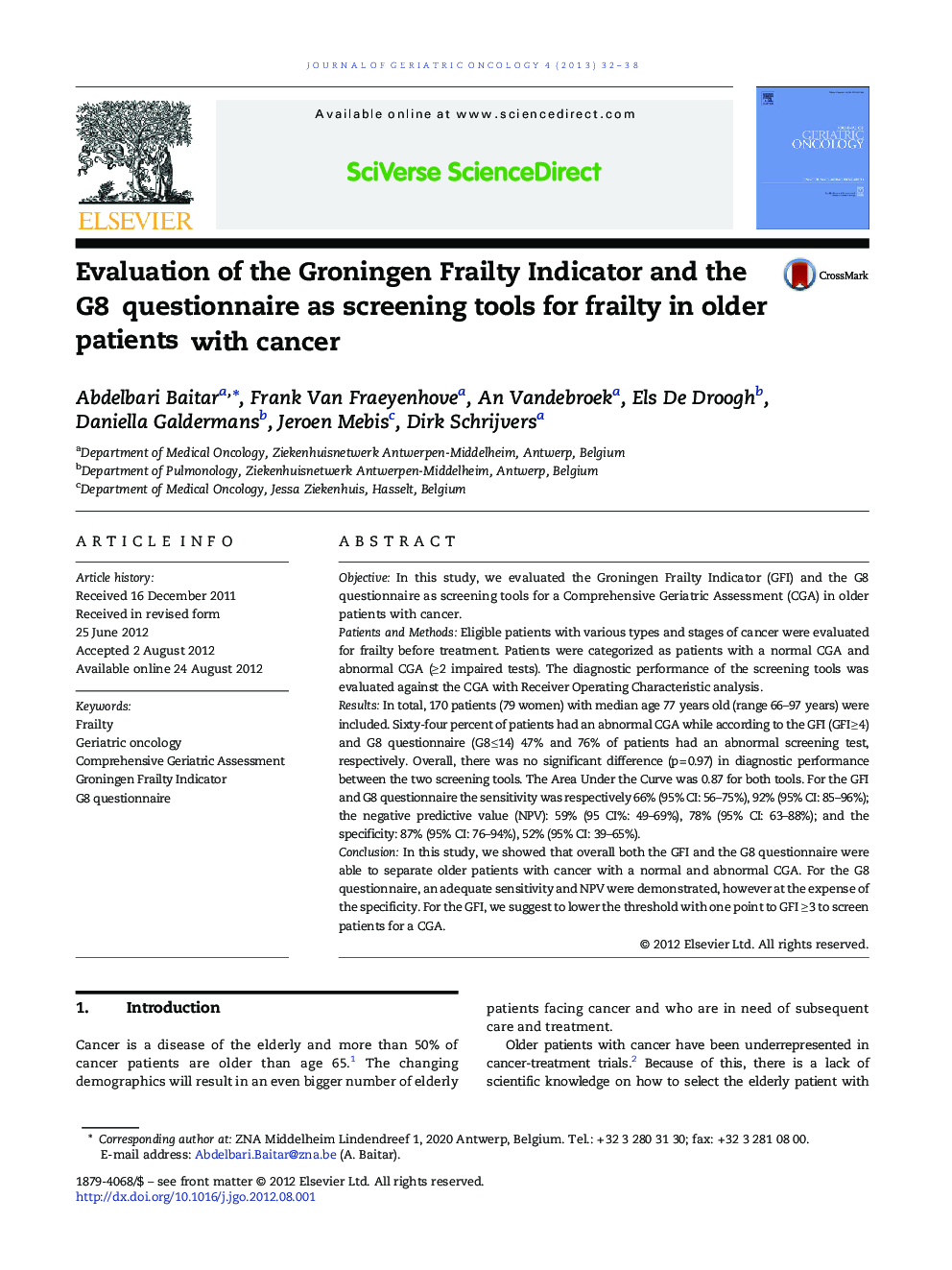| Article ID | Journal | Published Year | Pages | File Type |
|---|---|---|---|---|
| 1912900 | Journal of Geriatric Oncology | 2013 | 7 Pages |
ObjectiveIn this study, we evaluated the Groningen Frailty Indicator (GFI) and the G8 questionnaire as screening tools for a Comprehensive Geriatric Assessment (CGA) in older patients with cancer.Patients and MethodsEligible patients with various types and stages of cancer were evaluated for frailty before treatment. Patients were categorized as patients with a normal CGA and abnormal CGA (≥ 2 impaired tests). The diagnostic performance of the screening tools was evaluated against the CGA with Receiver Operating Characteristic analysis.ResultsIn total, 170 patients (79 women) with median age 77 years old (range 66–97 years) were included. Sixty-four percent of patients had an abnormal CGA while according to the GFI (GFI ≥ 4) and G8 questionnaire (G8 ≤ 14) 47% and 76% of patients had an abnormal screening test, respectively. Overall, there was no significant difference (p = 0.97) in diagnostic performance between the two screening tools. The Area Under the Curve was 0.87 for both tools. For the GFI and G8 questionnaire the sensitivity was respectively 66% (95% CI: 56–75%), 92% (95% CI: 85–96%); the negative predictive value (NPV): 59% (95 CI%: 49–69%), 78% (95% CI: 63–88%); and the specificity: 87% (95% CI: 76–94%), 52% (95% CI: 39–65%).ConclusionIn this study, we showed that overall both the GFI and the G8 questionnaire were able to separate older patients with cancer with a normal and abnormal CGA. For the G8 questionnaire, an adequate sensitivity and NPV were demonstrated, however at the expense of the specificity. For the GFI, we suggest to lower the threshold with one point to GFI ≥ 3 to screen patients for a CGA.
